Using the nematode Panagrolaimus sp. in larval rearing of longfin yellowtail Seriola rivoliana: preliminary results
Submited: 2021-03-09 23:37:06 | Published: 2021-10-31 20:57:49
DOI: https://doi.org/10.3856/vol49-issue5-fulltext-2733
Abstract
The potential of Panagrolaimus sp. nematode as a live prey was assessed in longfin yellowtail Seriola rivoliana larval rearing. Larvae were reared from 3-11 days post-hatching (dph) in a 2000 L tank and fed on copepods and rotifers. On 12 dph, larvae were transferred to eight 200 L tanks at a density of 12 larvae L-1 to start the feeding trial, consisting of two treatments (Artemia or nematodes) using four replicates each. Rotifers were offered on 12 dph with a "co-feeding" from 14 to 16 dph (rotifer/enriched Artemia or rotifer/nematode). Only Artemia or nematodes were supplied from 17 to 19 dph. Feeding incidence was 80-90% on 14 dph, but more larvae were capturing rotifers than Artemia or nematodes. Artemia consumption increased more than nematodes at 19 dph, though it was not significantly different. Significantly lower enterocyte and villus heights in the posterior intestine were observed at 19 dph in larvae fed on nematodes but only in enterocyte height in the anterior one. No significant differences were observed between treatments in total larval length and body depth on 16 dph, but a significantly higher total length in the nematode one was present on 19 dph. A significantly higher survival was observed in treatment Artemia compared to nematodes. These preliminary results showed a lower nutritional condition in larvae fed nematodes; however, technical improvements need to be performed to increase Panagrolaimus sp. availability to larvae in the water column.



